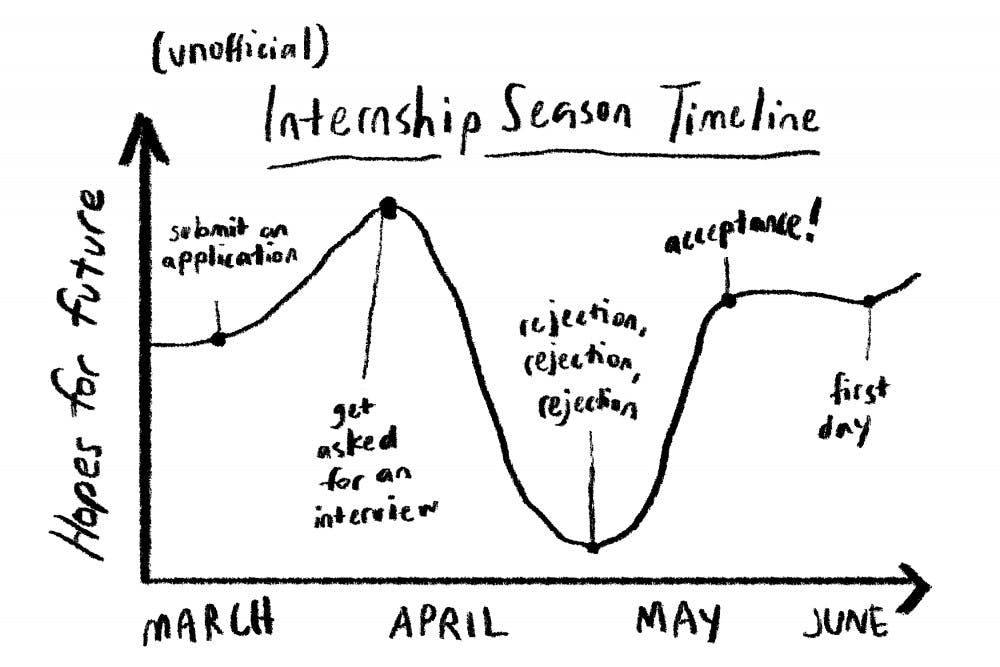Summer is just around the corner, and depending on your year, major and career of interest, the time for landing an internship may be rapidly approaching. It’s an unequivocally stressful process, especially at a university where balancing academics and extracurriculars can already be challenging enough.
We’re encouraged to network with full-time employees, submit one-page resumes intended to summarize our entire lives and send follow-up "thank you" notes, which are usually forced and not genuine.
I've always thought the entire process is particularly unnatural from start to finish. And unfortunately, you won’t find any tips on navigating the recruiting process from Seneca, Cicero or any of the other classics’ writings — a timeless refuge I often visit when I’m lost on how I should proceed.
As my third year of college winds down and I reflect on my past experiences, I can’t tell what’s better: rejection or admission?
Of course, receiving an offer letter — especially during an uncertain pandemic-stricken job market — can lift an enormous burden off your shoulders. If it’s from the specific company or program you’ve been targeting, it’s even more exciting.
But speaking from experience, I’ve found the joy emanating from any offer letter to be rather fleeting. Beyond the actual process of landing an internship, I think there’s something perverse about the entire conversation and how it’s addressed, by us and the public alike.
Growing up in an Asian household, success was often tied to numerical metrics or information that can be easily conveyed on paper. First, it was grades, then SAT scores, then college admissions — and now, the race for high-powered jobs at well-known companies.
Each stage may bring a new batch of carrots, but the same set of obstacles. Who can memorize, shuffle and push increasingly complicated sets of often boring and irrelevant information?
The emotional toll of portraying success as a linear progression of test scores, college admissions and subsequent employment is well-documented. There’s no doubt that positioning high salaries as the pinnacle of post-graduate achievement will evoke disappointment somewhere along the line. And if you happen to be one of the courageous few who ultimately decides to pursue your passion, the risk of failure, financially or otherwise, rises exponentially.




